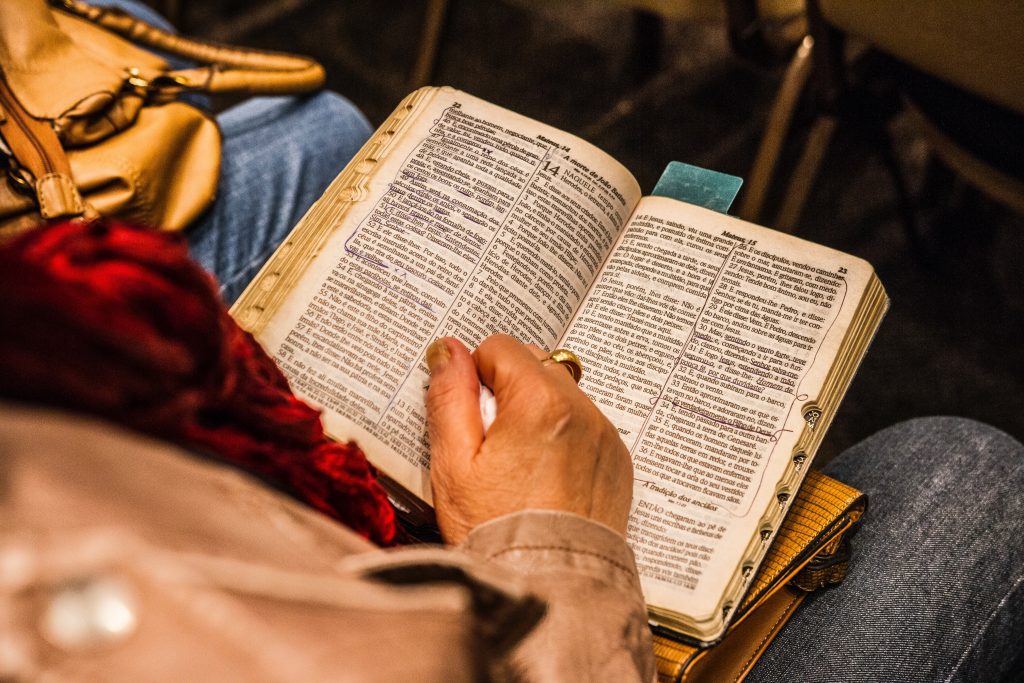LEARN SOMETHING NEW
Therapy Blog for Orem, Spanish Fork & South Jordan
Individual Counseling for a Faith Crisis
Individual Counseling: The Stages of Faith
It may come as no surprise to you that the faith crisis is a common concern for individual counseling clients in Utah. Maybe you are experiencing the same.
You might be working to understand how to cope after your spouse chooses to stop attending church. Or maybe you are the one who is experiencing a change. You might intend to ultimately stop attending church, change faiths, or you might even seek support to be able to continue in your same faith practice. Your journey through a faith crisis will be individual and unique, and there is no “wrong” way to navigate a faith crisis. (Related article: How to Find the Best Therapist for You).
No matter what your faith crisis looks like, you can find support to help you find peace and resolution, both in the therapy office and outside of it, too. Today, you will learn about the stages of faith, and how understanding the stages can help you know what to do next when it comes to your faith evolution. You will also learn how individual counseling can be a valuable tool for a faith
crisis.
A Changing Faith
The way that you approach and address your faith crisis will be individual. However, you will likely experience similar phases as others who have also experienced a faith crisis. Religious studies and psychology researchers have narrowed down these stages. (Source- Stages of Faith, James Fowler, 1981). Knowing the stages can help you understand where you may need to seek more support, and what you can expect from your own faith journey.
Stage One: The Narrative Phase
If you attended a church or were religious growing up, this phase might seem familiar! This phase is what children commonly experience when they grow up in a church setting. If you are a member of the Church of Jesus Christ of Latter-Day Saints, you can think of this as the Primary stage.
This stage is where you likely viewed your religious beliefs as stories with religious heroes. These might be prophets or other religious leaders. As you became slightly older, you probably began to view these as more logical ideas; right and wrong, good and evil, etc, but they were still generally simple and straightforward. Some call this the “narrative stage” because most of your religious education will be via stories told to you at church.
It is possible for adults to also be in this phase of faith. In fact, it is important to note that there is no “correct” destination in the phases. They are simply numbered based on the typical way you’ll probably notice them in your life, but that doesn’t mean you will experience all of them in your lifetime. And that is not bad! (Related Article: What Happens in Therapy?). If you are still in this first phase, it just means that you may view faith more literally than people in other phases. And, if you are in any of the subsequent phases, you may view this as the “before” time, before you noticed a change in your beliefs or perspective.
Stage Two: The Conventional Phase
If you have entered this phase, you place a bigger emphasis on your church organization. You find support, structure, and connection when you attend church. In fact, in this phase, church attendance and the study you participate in with your fellow church members is likely very important to you. You find purpose in church callings and assignments.
You also have “outside” perspectives from loved ones and acquaintances of other faith practices, and you find a way to incorporate them into your own beliefs. It’s important to note that most adults are comfortable in this phase. And that is great! A church community can give you a sense of purpose and stability. Some call this the “Conventional Stage”, because this might be what you picture when you picture a religious person; someone who attends church weekly and participates. (Related Article: Individual Therapy).
Stage Three: The Reflective Stage
If you are in this phase, you might be experiencing some challenges when it comes to your faith. Maybe it seems like you are beginning to see “out of the box”. You might have many questions and concerns about your faith. Maybe you don’t find the same stability and safety you once felt in your church congregation or ward.
This phase can look different depending on your personal experience. You might still feel comfortable at church, you just have more questions than you did before, in the conventional phase. For some, this can also look like becoming disillusioned, frustrated, or angry when it comes to their faith practice. A lot of this can depend on your experiences in the last stages of faith, and also your current experiences. This phase can be very challenging emotionally and spiritually. Many people in this phase may seem like they are non-religious.
This phase is when many seek help for their faith crisis in individual counseling. (Related Article: Anxiety Help- Individual Therapy). A therapist can help you express your feelings and process your experiences and emotions surrounding church. It’s important to note that a therapist will not pressure or try to influence you to stay or leave your faith. They are just there to support you emotionally. Friends and family can also be a great resource in this phase.
Stage Four: The Acceptance Stage
This phase is where you may experience resolution after the confusion and frustration of the reflective phase. In this phase, you may begin to realize that things are not all black or white. You might decide that you can attend church and still have questions. Or, you may decide that church is not the best fit for you, and you begin a different path. (Related article: Marriage Counseling for Mixed Faith Marriages). Either way, this phase is where you will begin to seem less “stuck”. Especially if the last phase was a challenge for you.
Individual Counseling Can Help You Navigate The Journey
As you read about those phases, there is a chance you may have identified with one stage in particular. Maybe you wondered “what now?”. There are many places you can find support in a faith crisis; friends, family, ward members, and also therapy. A therapist can be a great source of impartial guidance, or a supporter if you have a specific destination in mind. (Related article: Resilience). Your therapist can be there to help you navigate the emotional and relational challenges of your faith journey.
Ready to get started? Schedule an individual counseling with us today in Orem, South Jordan, or Spanish Fork.
Written by Lauren Adkins



